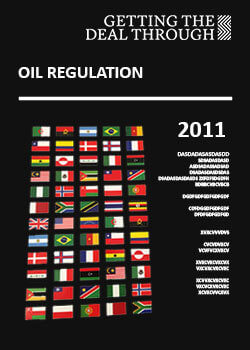Newsletter June

New customs statute
With the execution of Decree 0659 of 2024, a new Customs Statute has entered into force. The new Decree seeks to streamline Colombia’s international trade; will allow the National Tax and Customs Directorate (DIAN) to improve controls against smuggling; will allow DIAN to have new technology and to facilitate the operations of importers.
The main modification brought about by this new legal framework is the mandatory implementation of the “Advance Goods Import Declaration”. Under this measure, importers must report to the DIAN what merchandise they are going to bring into the country 48 hours before it enters the national territory. This advance declaration was already mandatory for textiles, footwear, and machinery parts, among other products.
For example, when importers declare their goods in advance, customs clearance time takes, on average, six (6) days less at El Dorado airport and 3.3 days less at the port of Buenaventura, compared to those who do not declare their goods in advance. In this way, importers will be able to dispose of their products faster and this agility will translate into shorter times and lower costs that will benefit the country’s economy.
The Statute also makes the use of satellite tracking devices mandatory for goods moving through the country that are still under customs control.
The new Customs Statute also requires the development of a new import management system. This new system will replace the current SYGA (Customs Information and Management System), which is technologically obsolete and has security vulnerabilities that make the control operations on the entry of goods less effective.
Source: https://www.dian.gov.co/Prensa/Paginas/NG-Comunicado-de-Prensa-032-2024.aspx
Strengthening of penalties for tax offenses in tax reform law 2277 of 2022
The Constitutional Court has strongly supported the changes introduced by Law 2277 of 2022 regarding tax crimes. In its recent Ruling C-019 of 2024, the Court affirmed that the amendments made comply with the principles of “consecutivity and flexible identity proper to the legislative process”. This decision reinforces the legitimacy of the provisions that seek to combat tax evasion and tax fraud in the country.
One of the main provisions contemplated in the reform is the imposition of harsher penalties for those taxpayers who incur in omissions or false declarations in their income tax returns. It establishes that those who omit assets, declare a lower value than the real value of assets, or declare non-existent liabilities for amounts higher than 1,000 legal monthly minimum wages in force (smmlv), equivalent to $1,300 million (approximately $340,000 USD) with this year’s minimum, may face prison sentences between four and nine years.
In addition, the law provides for an escalation of penalties depending on the amount evaded. If the tax value of the evaded amount is between 2,500 and 5,000 minimum wages, the penalties will be increased by one third. In the event that it exceeds 5,000 minimum wages, the penalties will be increased by half, which reflects the seriousness with which tax evasion in the country is sought to be addressed.
The Superintendence of Companies recommends that the general shareholders’ meeting approve the sustainability report at its ordinary meetings.
At the end of last year, the Superintendence of Companies issued External Circular No. 100-000010 of 2023, where recommendations for the preparation of a Sustainability Report are suggested. These recommendations include that such report should be prepared annually by a designated person in charge and, if prepared, it should be presented during the ordinary meeting where the Financial Statements are approved.
Although the preparation and presentation of the Sustainability Report during the ordinary meeting is not mandatory so far, the Superintendency of Companies has expressed its intention to make these recommendations mandatory for companies that exceed certain thresholds. Therefore, it is suggested to initiate their preparation and approval during this year’s ordinary meetings in order to be prepared for possible future regulatory changes. The Superintendency of Companies clearly expressed its desire and plan to convert these recommendations set forth in the Circular into fully enforceable obligations for those companies that exceed the thresholds defined in Article 5 of said Circular.
To which companies does the recommendation to prepare the Sustainability Report apply?
- Companies that are under surveillance or control by the Superintendence of Companies and that have reached total revenues or assets equal to or greater than forty thousand (40,000) smlmv, as of December 31 of the immediately preceding year.
- Companies that are part of the following sectors: (i) mining – energy, (ii) manufacturing, (iii) construction, (iv) tourism, or (v) telecommunications and new technologies and that comply with the requirements established in paragraph 5.2 of the Circular.
Content of the Sustainability Report
- Name of International Reporting Standard
- Table of Contents
- Company profile.
- Context and sustainability strategy of the companies.
- Disclosure of management performance
- Assignment of a person responsible for the Sustainability Report.
Publication:
- Annual internal communication to all company employees.
- Recommended publication on the company’s website.
When can the alternate replace the principal legal representative?
The alternate legal representative of a Colombian company only has powers of representation in the permanent or temporary absence of the principal legal representative, since he/she lacks the capacity of representation while the principal is in office. The above was remarked by the Superintendence of Corporations in its official notice 220-060152 of March 18, 2024.
Substitution: Action and effect of substituting a person during a period of action that may not be joint or concomitant to the substituted one. The substitution does not depend on a territorial factor since the legal representative can represent and act for the legal person from any part of the world. On the contrary, the substitution only applies in the event of the impossibility of exercising functions such as bereavement, illness, incapacity, etc.
Alternate Representation: The alternate will not have the capacity to represent a company as long as the principal legal representative is capable, the above also includes not being able to make decisions contrary to those previously made by the principal legal representative and to subscribe documents that the principal has denied.
The alternate L.R. has the obligation to remain permanently available to replace the principal L.R. in his functions when the latter does not have the effective possibility to manage. Otherwise, the alternate does not have the capacity or power to represent the legal entity, for example, he/she could not call a meeting of the General Assembly of Shareholders if the principal previously refused to do so, among other cases.

One step closer to Energy Transition in Colombia
CAUSE FOR DISOLUTION OF COMPANIES DUE TO NON-COMPLIANCE WITH THE HYPOTHESIS OF CONTINUING BUSINESS



